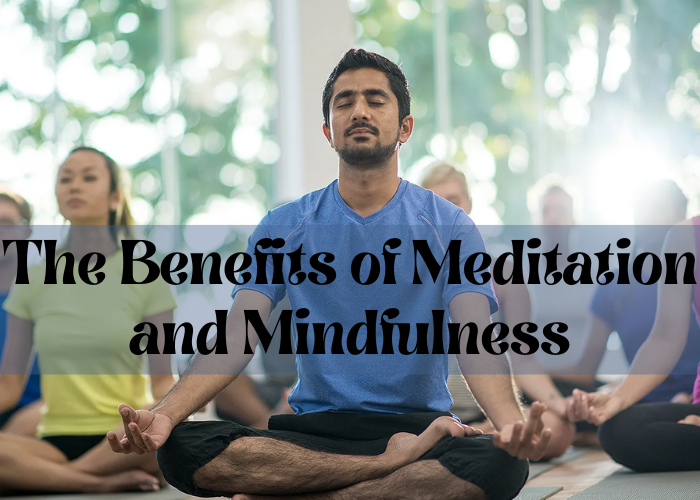What Is Meditation? Meditation is the practice of focusing your mind on a single point of focus. The goal is to train yourself to focus your attention, and eventually, it can help you develop mindfulness. Different forms of meditation require different techniques, but they all have one thing in common: They encourage you to stay focused on something other than whatever thoughts are currently racing through your head. Meditation is a powerful tool that can help you develop many positive qualities, including mindfulness. In this article, we’ll explore some of the benefits of meditation and mindfulness in more detail.
Meditation helps you cope with stress
By practicing mindfulness, you can learn to relax your mind and body. This will help reduce the symptoms of stress, like anxiety and depression. Meditation also has been shown to improve sleep quality and duration, which means that meditators are more likely to get a good night’s rest than non-meditators. Finally, meditation may prevent or even reverse some types of disease by improving immune system function–a lot of people who practice mindfulness have reported feeling less tired since they started practicing!
Meditation can also help you become more focused and productive. A recent study found that meditators were able to focus better on tasks than non-meditators.
Meditation improves focus and concentration
Meditation is an excellent tool for improving focus and concentration. When you meditate, you can use it to help you focus on the present moment. This can be helpful in many different situations:
- You might need to concentrate on getting through your day as efficiently as possible. Meditating may help with this because it will keep your attention focused on what’s happening right now, rather than wandering off into thoughts about past events or future challenges.
- If there’s something specific that needs doing (like writing an essay), meditation has been shown to improve working memory by increasing its capacity for holding information at once without becoming overwhelmed by new input from our environment.[1] This means that when we try something new–like writing a paper in English–we’ll actually be able to handle more information than before because our brain has learned how best use its resources!
Meditation reduces your risk of depression
Meditation can help you identify, understand and cope with negative feelings by teaching you how to recognize them. It’s also important for people who are experiencing depression because it helps them learn how to manage stress and anxiety so they don’t get overwhelmed by it.
Meditation is also a good way to manage depression because it gives you the opportunity to step back from your thoughts and feelings so that you can see them more clearly. You may be able to see how certain situations are causing these feelings, which will give you an idea of what steps to take next.
Meditation reduces anxiety and boosts self-esteem
- Meditation is a great way to reduce anxiety and boost self-esteem.
- When you meditate, you are learning how to become more aware of your thoughts and feelings. This allows you to deal with stress more effectively, which can help boost your mood and make life easier overall.
- You will also learn how to be more self-aware, which means that when something happens in your life that upset or surprised you before (like getting fired from a job), it won’t affect your ability to function well anymore because now there’s no longer any shock factor involved–you’re used to dealing with adversity!
Meditation makes you more productive at work
You may have heard that meditation is a great way to relax and recharge, but did you know it can also be used as an effective tool for productivity?
The benefits of mindfulness are many: it helps you focus on the task at hand, relieve stress and anxiety, increase your energy levels, improve sleep quality and more! Meditation is a great way to incorporate these benefits into your daily life. If you want to start meditating regularly but aren’t sure where or how to begin (or even if meditation is right for you), here’s what I recommend:
Conclusion
If you’re looking for a way to improve your mental health, meditation may be the answer. It can help you cope with stress and anxiety, improve focus and concentration, reduce your risk of depression, reduce anxiety and boost self-esteem. Meditation also makes you more productive at work because it reduces distractions while improving concentration on tasks. If any of these benefits sound appealing—or just plain appealing—then I encourage you to give meditation a try!





